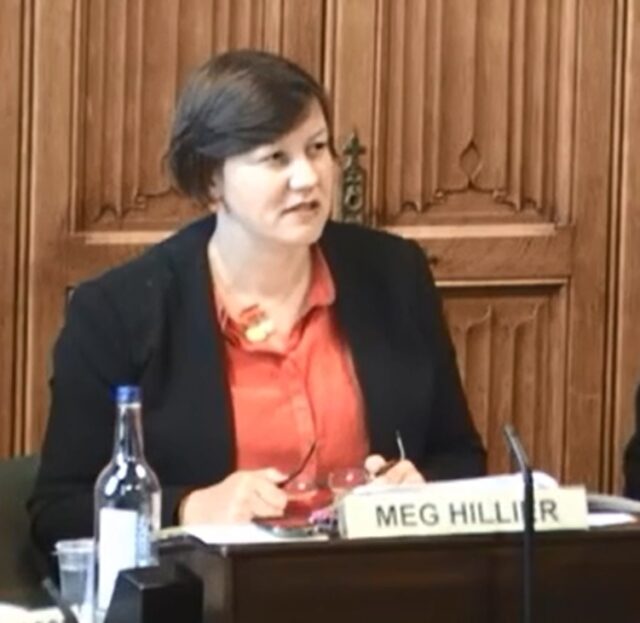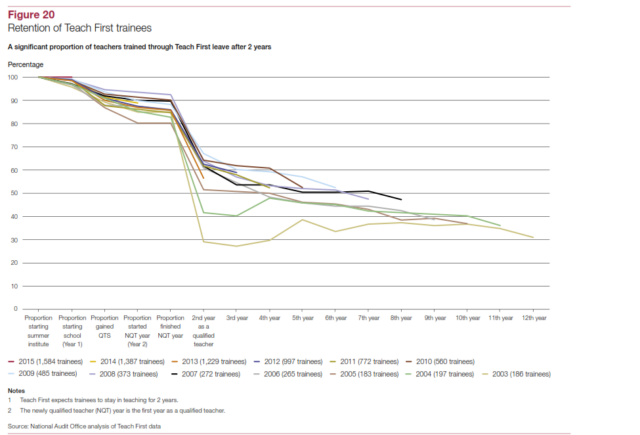The National Audit Office (NAO) has delivered a scathing verdict on the Department for Education’s (DfE) lack of leadership on school finances as deficits continue to balloon.
The public spending watchdog, which has analysed evidence over the past eight months, criticised the DfE for requesting budget cuts from schools while “not knowing” why deficits are growing, not clearly communicating a strategy, and not evaluating its own interventions.
The report also accused the department of failing to recognise that per-pupil spending would drop over the next four years because of increasing pupil numbers and rising inflation.
Read Schools Week’s 11 key findings from the report here.
Meg Hillier (pictured below), chair of the public accounts committee, called for the DfE to “get their act together”.
The report showed that schools face making £3 billion in savings by 2020 to meet cost pressures – an eight per cent budget cut. But Hillier said “the government supposed to support them to become more efficient has instead focused on structural reform. It is all sounding like too familiar a story”.
The DfE said the national fair funding formula – to be introduced in 2018 – will ensure schools are funded correctly and give headteachers “certainty over their future budgets, helping them make long term plans and secure further efficiencies”.

It’s the second scathing NAO report in the space of a year for the DfE. A previous report on initial teacher training found the department was failing to accurately predict how many teachers were needed each year, handed out bursaries without knowing their impact, and was spending far more training some new teachers than others.
The school finances report found the number of secondary academies spending more than their annual income rose from 39 per cent in 2012 to 2013, to 61 per cent in 2014 to 2015.
Among maintained secondary schools, 59 per cent spent more than their income in 2014 to 2015, compared to 39 per cent in 2012 to 2013.
Because the number of pupils is expected to rise 3.9 per cent from 2015 until 2020, per-pupil funding will, on average, “only” rise by about £70 each, the report found.
This means a reduction in real terms funding once inflation is factored in.
The NAO has urged the DfE to “take responsibility for supporting schools to meet cost pressures” and publish guidance on procurement and workforce efficiencies as soon as possible.

Evidence demonstrating how schools could make budget cuts while improving educational outcomes should “also be gathered”.
The report added that “the department should provide clear leadership to support schools” and ensure that all parties were “open” and “realistic” about making savings.
Amyas Morse, head of the NAO, said: “The department is looking to schools to finance high standards by making savings and operating more efficiently, but has not yet completed its work to help schools secure crucial procurement and workforce savings.
“[…]Schools could make the ‘desirable’ efficiencies that the department judges feasible or could make spending choices that put educational outcomes at risk.
“The department, therefore, needs effective oversight arrangements that give early warning of problems, and it needs to be ready to intervene quickly where problems do arise.”
Such warnings should be given in a more “timely” manner to maintained schools under local authorities, as well as academies, said the report.
It also found that the Education Funding Agency (EFA), which is responsible for distributing funding, kept unclear records which made it “difficult” to assess whether intervention in financially failing schools has been effective.
Nor were these interventions assessed for their long-term impact.
DfE’s approach to school finances is in special measures
Adrian Prandle, director of economic strategy and negotiations at at the Association of Teachers and Lecturers (ATL), said the DfE’s approach to school finances was in “special measures”.
“ATL believes this report supports our call for school funding to be increased to cover rising costs, avert an inescapable crisis in teacher supply, and support high quality education for all.”
A DfE spokesperson said: “We recognise the increasing cost pressures schools are facing and will continue to provide advice and support to help them use their funding in cost effective ways, and improve the way they buy goods and services, so? they get the best possible value for their pupils.”
They pointed to a range of funding available to support school improvement, such as a £50 million-per-year fund for local authorities, £140 million strategic school improvement fund and £60 million for opportunity area pilots.
“We want schools to have the resources they need, and through our careful management of the economy we have been able to protect the core schools budget in real terms.
“That means that in 2016-17 schools have more funding than ever before for children’s education, totalling over £40 billion.”







Astonishing and predictable in equal measure. The DfE should be closed down. Clowns.